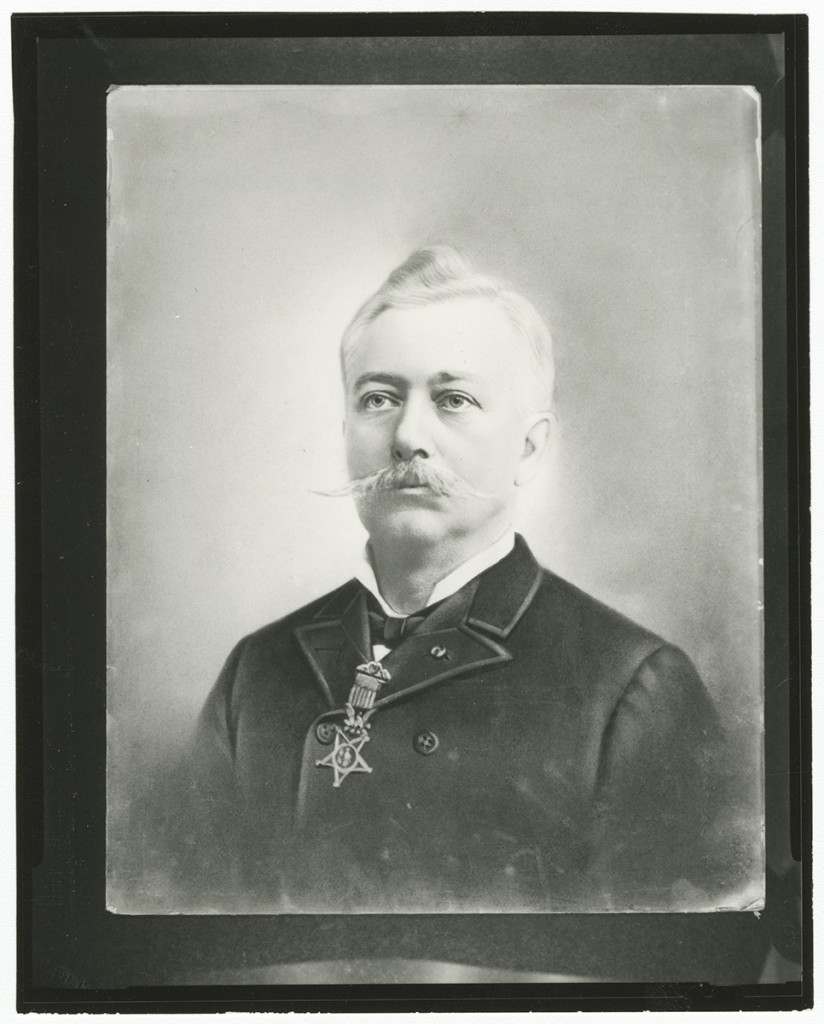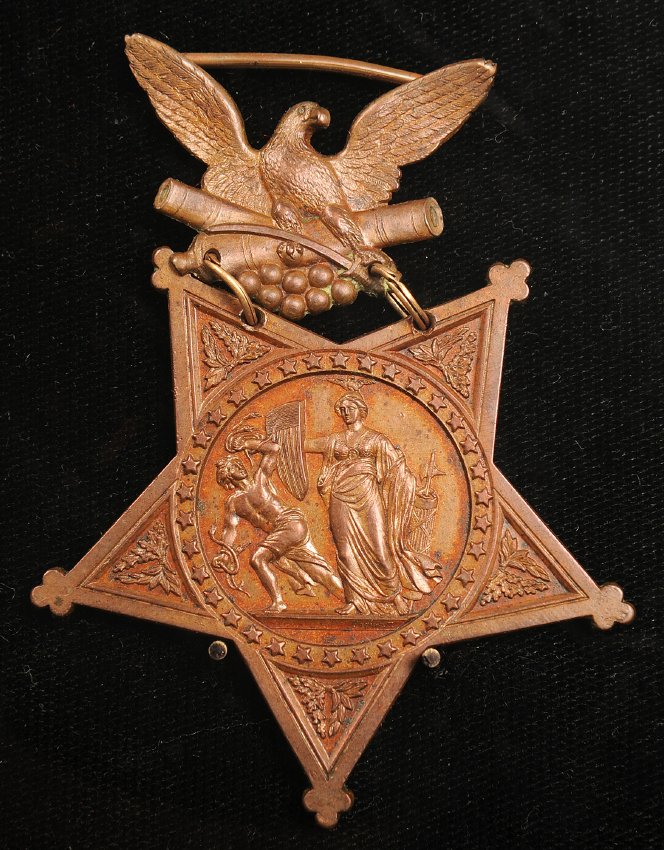The first two men with Nebraska connections to earn the Congressional Medal of Honor received their medals
150 years ago, near the end of the Civil War. Belgian-born Victor Vifquain, the first recipient, got his Medal of Honor for leading the Ninety-seventh Illinois Volunteer Infantry in an April 9 attack on Confederate Fort Blakely near Mobile, Alabama. Vifquain was cited for capturing a rebel flag from the breastworks. So how does an immigrant soldier leading an Illinois regiment in an Alabama battle qualify as a Nebraskan? After coming to the United States, Vifquain was one of the first settlers in Saline County’s Blue River Valley in 1857. When the Civil War began, he did not wait to enlist in Nebraska but went east to do so. After the war Vifquain returned to his Saline County farm and remained a Nebraska resident until his 1904 death in Lincoln.
In 1891 Gov. James E. Boyd appointed Vifquain adjutant general of Nebraska, a post he held until 1892. During the 1898-99 War with Spain, Vifquain became commander of the Third Nebraska Volunteer Infantry composed of Nebraska national guardsmen, which served in Georgia and in Cuba. A Medal of Honor marker stands near Vifquain’s grave in Lincoln’s Calvary Cemetery and his Civil War Medal of Honor has been donated by his family to the Nebraska State Historical Society.
The other Nebraskan to receive the Medal of Honor in 1865 was Francis H. Lohnes, a lowly private in the First Nebraska Veteran Volunteer Cavalry. Lohnes, from Richardson County, enlisted in the First Nebraska regiment in 1861, re-enlisting in 1864. His medal resulted from his stubborn fight against Indians near Smith’s Ranche in Nebraska’s Platte Valley on May 12, 1865. Lohnes was leading a wood-cutting party when he and his men stumbled into a skirmish between Indians and other Nebraska soldiers. According to the citation, despite receiving an arrow wound and having his horse shot from under him, Lohnes held off the Indians until his men could reach safety. Upon the recommendation of Gen. Patrick Connor, commanding the District of the Plains, the Medal of Honor was presented to Lohnes at Fort Kearny on August 15, 1865. Attending the ceremony were two generals and Alvin Saunders, governor of Nebraska Territory.
The postwar story of Francis Lohnes is tragic. He returned to his Richardson County farm and died on September 18, 1889, in a steam tractor accident. While moving the heavy engine over a stream, the wooden bridge collapsed and Lohnes was trapped in the wreckage and scalded to death by steam escaping from the boiler. He left behind his widow and two children. Visitors to the Maple Grove Cemetery near Verdon, Nebraska, will see that Francis Lohnes’s grave has also been marked with a government Medal of Honor monument. He remains the only Nebraskan to receive the Medal while serving in Nebraska and in a military unit named for the state.
Congress created the Medal of Honor in 1862. In the early years it was sometimes awarded for acts that would not meet today’s standard requiring conspicuous gallantry above and beyond the call of duty that puts one’s life at risk. In 1969 the Nebraska Legislature authorized induction into the Nebraska Hall of Fame for Medal of Honor recipients who were born in Nebraska, who received the Medal for service in Nebraska, or who lived in Nebraska for a minimum of two years. A plaque at the State Capitol records the names of those who have been so recognized.
Further reading: James E. Potter, “A Congressional Medal of Honor for a Nebraska Soldier: The Case of Pvt. Francis W. Lohnes,” Nebraska History 65 (Summer 1984); Potter, “The Pageant Revisited: Indian Wars Medals of Honor in Nebraska, 1865-1879” in R. Eli Paul, ed., The Nebraska Indian Wars Reader, 1865-1877 (Lincoln: University of Nebraska Press, 1998); and Jeffrey H. Smith, A Frenchman Fights for the Union: Victor Vifquain and the 97th Illinois (Varna, Ill., Patrick Publishing, 1992)
– James E. Potter, Senior Research Historian





